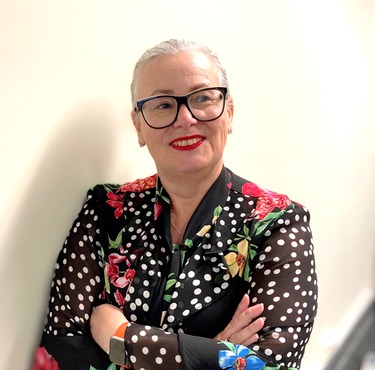For many organisations, their contact centre operations and the people who work in them were at the frontline of supporting customers during the COVID-19 crisis. Customer demands on communication channels and services dramatically increased at the same as people had to work from home. The Auscontact Association played a critical role in supporting the industry during the pandemic.
Retiring CEO of Auscontact, Fiona Keough, is a veteran of the contact centre industry who has seen the industry go through tumultuous changes over the years. In the last few years, she has led the association through the challenges brought on by the pandemic and the disruptions it has caused across the country.
She looks forward to leaving the association and the industry it supports, in a far stronger position than when she first became CEO a decade ago. I recently caught up with Fiona to talk about her career, her role at Auscontact and where she believes the industry will be in the future.

Fiona, can you tell us a little bit about yourself and your career?
Interestingly, my original vocational guidance advice was to become a music librarian. I think I might have lost my way. I’ve spent most of my career in contact centres. Starting in the NRMA Car Insurance Enquiry Centre, I then moved to the St George Bank, American Express, Carlson Wagonlit Travel and finally ATA/ Auscontact.
The roles I’ve had, have ranged from leading technology changes to leading large groups of contact centre staff both onshore and offshore. I’ve had the opportunity to be exposed to so much over the years.
I have been a member of the association since 1991, commenced volunteering in 2007 and in my current role since 2012. My formal title is CEO, and my role is to bring to life the organisation’s strategy, to create and engage our community, as well as to support and meet the needs of our members. I literally have a great job.
The Auscontact Association is a not-for-profit that supports the contact centre industry in Australia. As an industry body we are supplier agnostic, we advocate to government on behalf of the industry, provide professional development, benchmarking, an awards program, conference and networking. The association operates through a small group of employees and our wonderful volunteers across Australia. It is the place to find a lively and knowledgeable community about all things contact centre.
What would you say are the most important things you have learnt in your career and how have you applied them?
- Be authentic.
- It’s okay to not have all the answers and to admit that. You can’t be the expert on everything, making mistakes is okay what did you learn, what will you do differently.
- Understand the risks and be prepared to take them, where it makes sense to do so
- Find people that will simultaneously support & challenge you
- Never stop being prepared to learn and grow
- The value of thankyou – catching your team doing something well and acknowledging it
- Listen, communicate, communicate, communicate
- Your role does not define you
What do you think are the biggest trends currently impacting the industry?
No surprises here, the pandemic in the last 2 years has significantly changed the way contact centres operate. Customers and employees have become more vocal about flexibility – whether that be work from home, hours, or accessibility. Contact centre leaders must listen and be responsive to the changing needs and circumstances of their customers as well as their employees.
In our recent benchmarking survey we found that 1 in 3 (31%) of employees want to work at home 4 to 5 days a week, however, only 1 in 10 (13%) of organisations want employees to do so.
Increased automation through digital technology, largely as a response to the pandemic, is playing a significant part in reshaping the contact centre environment. Automation allows more to be done for less, but people need to remember that automation is not a ‘silver bullet’.
Automate where it makes sense to your customers and your business (find the sweet spot), don’t automate just because you can – you may dis-enfranchise your customers. Our recent survey showed that organisations believe that the majority (59%) of times a consumer changes channels, they choose to do so; however, consumers state that 65% of the times they change, it is because they are forced to change channels.
I’ve not touched on the need for resilience, the mental health issues as we expect our staff to carry the increased emotional labour (turning up every interaction with a smile) as the so called ‘easy’ transactions are automated further.
Where do you see the industry going in the next 2 – 5 years?
No doubt the contact centre will continue on its automation journey. I think the contact centre will likely go to a more dispersed model. Remote working has become a standard facet and will remain a key feature in the future of the contact centre. As part of this move to a dispersed model enterprises are leveraging the capabilities of BPOs both on and offshore.
I hope the industry develops a better understanding of customer experience versus customer service and the role each has to play to achieve desired business outcomes. Customer experience refers to the complete journey a customer takes within an organisation, from initial awareness to post-purchase care. Customer service refers to a single event when a customer reaches out for help and support during this journey.
Roles will become more complex, diverse and we’ll be asking more of our people. And it is my hope that contact centres will be recognised as a great opportunity to have a career and not just an entry point into an organisation.
What advice would you give those pursuing a career?
The work of a contact centre agent can often be complex and demanding but it can also be extremely rewarding and lead to a successful career path. Contact centres or more broadly CX offer such a variety of roles and opportunities.
My advice to people is to follow their hearts. Don’t expect to be the leader immediately, you need to do the hard yards first and gain the value from doing so.


